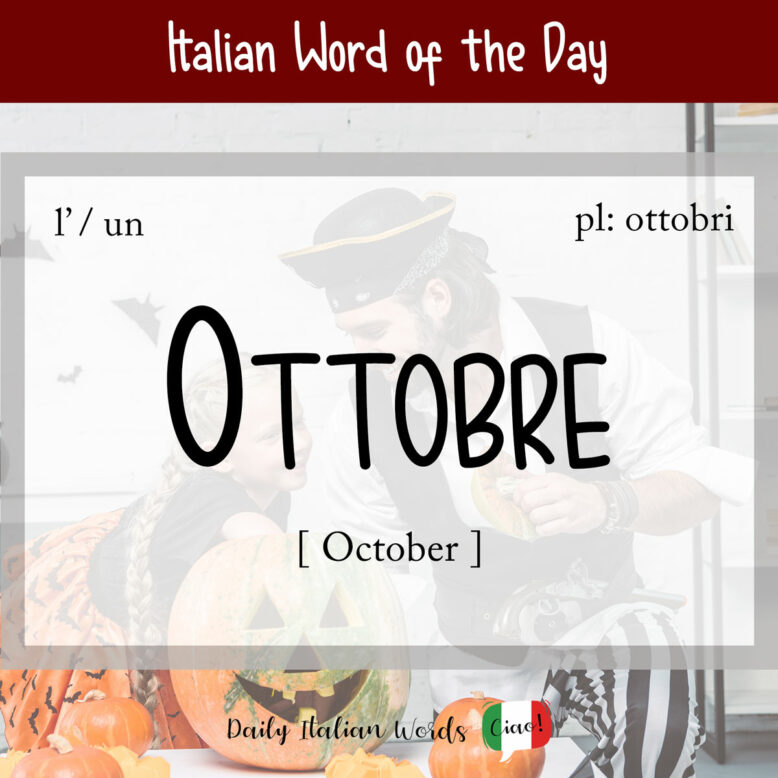October—known as ottobre in Italian—has always been one of my favourite months. Perhaps it’s because autunno (autumn) is in full swing, with colourful leaves falling from the trees and a crisp breeze in the air that invites you to cozy up in your warmest maglione (sweater) and pantofole (slippers).
ottobre
October

Ottobre is the tenth month (decimo mese) of the year according to the Julian and Gregorian calendars and it is made up of 31 days (trent’un giorni). As is the case with all months of the year, ottobre isn’t capitalised in Italian as it is in English.
It derives from the Latin octo meaning otto (eight) because originally it was the eighth month of the Roman year.
Il mese di ottobre dura trent’un giorni.
The month of October is 31 days long.
Ottobre is a masculine noun starting with a vowel. It is mostly used in the singular form, and very often Italians will say il mese di ottobre (the month of October) rather than l’ottobre. But if you’re curious, these are the definite and indefinite articles it takes:
- l’ottobre = the October
- un ottobre = an October
- gli ottobri = the Octobers
- degli ottobri = some Octobers
The star sign (segno zodiacale) for those born in ottobre is either Bilancia (Libra) if you were born between October 1st and October 23rd or Scorpione (Scorpio) if you were born after the 23rd.
As I mentioned in the introduction, ottobre in the northern hemisphere is characterised by its vibrant colori autunnali (autumn colours), cooler temperatures, and the gradual transition from estate (summer) to inverno (winter). Children can’t get enough of jumping into cumuli di foglie (piles of leaves), while for the adults, a nice, warm cioccolata calda (hot chocolate) becomes the drink of choice.

Of course, ottobre wouldn’t be complete without Halloween, which is also called Halloween in Italian, though pronounced without the initial H.
Halloween isn’t as popular in Italy as it is elsewhere, but a few pastimes have grown in popularity such as ritagliare le zucche (carving pumpkins), fare dolcetto o scherzetto (trick-or-treating), and travestirsi (dressing up).

Heather Broster is a graduate with honours in linguistics from the University of Western Ontario. She is an aspiring polyglot, proficient in English and Italian, as well as Japanese, Welsh, and French to varying degrees of fluency. Originally from Toronto, Heather has resided in various countries, notably Italy for a period of six years. Her primary focus lies in the fields of language acquisition, education, and bilingual instruction.


